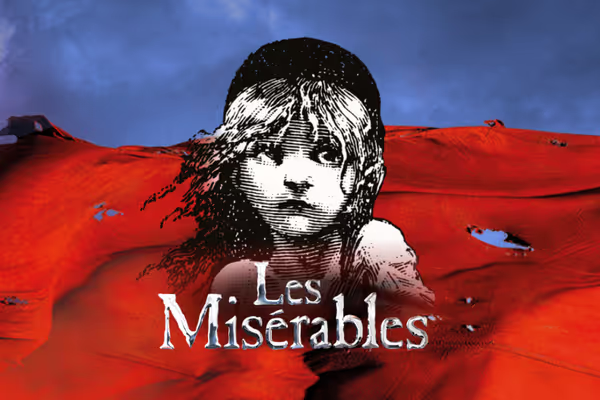Review: LES MISERABLES Is Surprisingly Strong on Tour, Now at Dr. Phillips Center
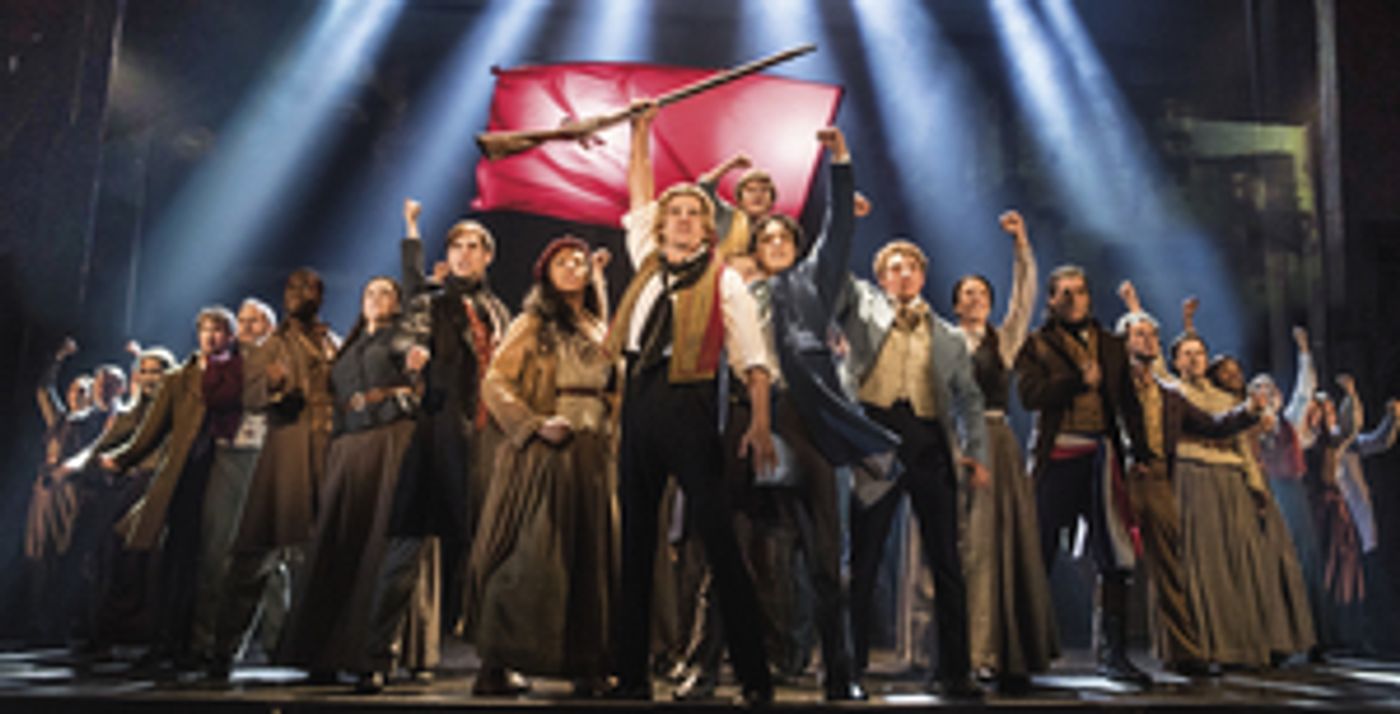
LES MISÉRABLES is a show committed to two competing truths:
1. The world is harsh and its people are cruel.
2. The world is just and its people have hearts of love.
I think it's precisely because both those things are equally and inexorably true that this has become one of the mainstays of musical theatre.
Naturally, mainstays and naysays go hand in hand. Put a poll on your Facebook page and you'll surely find a few friends who believe the title is about the audience.
There are those who say that LES MIS is too fast-paced or hard to follow, but I see that same criticism as a testament to the depth and complexity of its libretto - an invitation to come back and study it again and again. There are others who say it is too long, too slow, or exhausting. Well, call me l'apologiste, but I am unfailingly impressed that this show about a French revolution doesn't get around to revolution until nearly the end of Act I, spending the bulk of its time in scene setting so that when the revolution arises, we fully understand why - and feel the call to arms ourselves. To my mind, it moves at a clip (particularly in this latest touring version, but more on that in a moment) and covers a staggering amount of ground in under three hours, with tremendous narrative economy. The time flies by.
Another common criticism is that it's too didactic, simplistic, and morally black-and-white. I won't discount that argument but will reframe it as follows: to the extent that the characters each represent an unsubtle good or evil, they operate as mythic figures in a fable. LES MIS is more than the story of long-ago French revolutionaries; it is the story of human oppression and rebellion. Even if no person is entirely evil, oppression is, and the crusade against it is noble. The characters here exist in service of that epic, ageless theme. It's poetry.
Of course, there are also the tired old arguments about LES MIS being historically inaccurate or a poor adaptation of the novel that inspired it. As is almost always the case when that argument is made, it ignores the meaning of the word "adaptation" and the artistic virtue that makes adaptation worthwhile. Here again, understanding the show as myth or fable may help to overcome any misgivings about its origins.
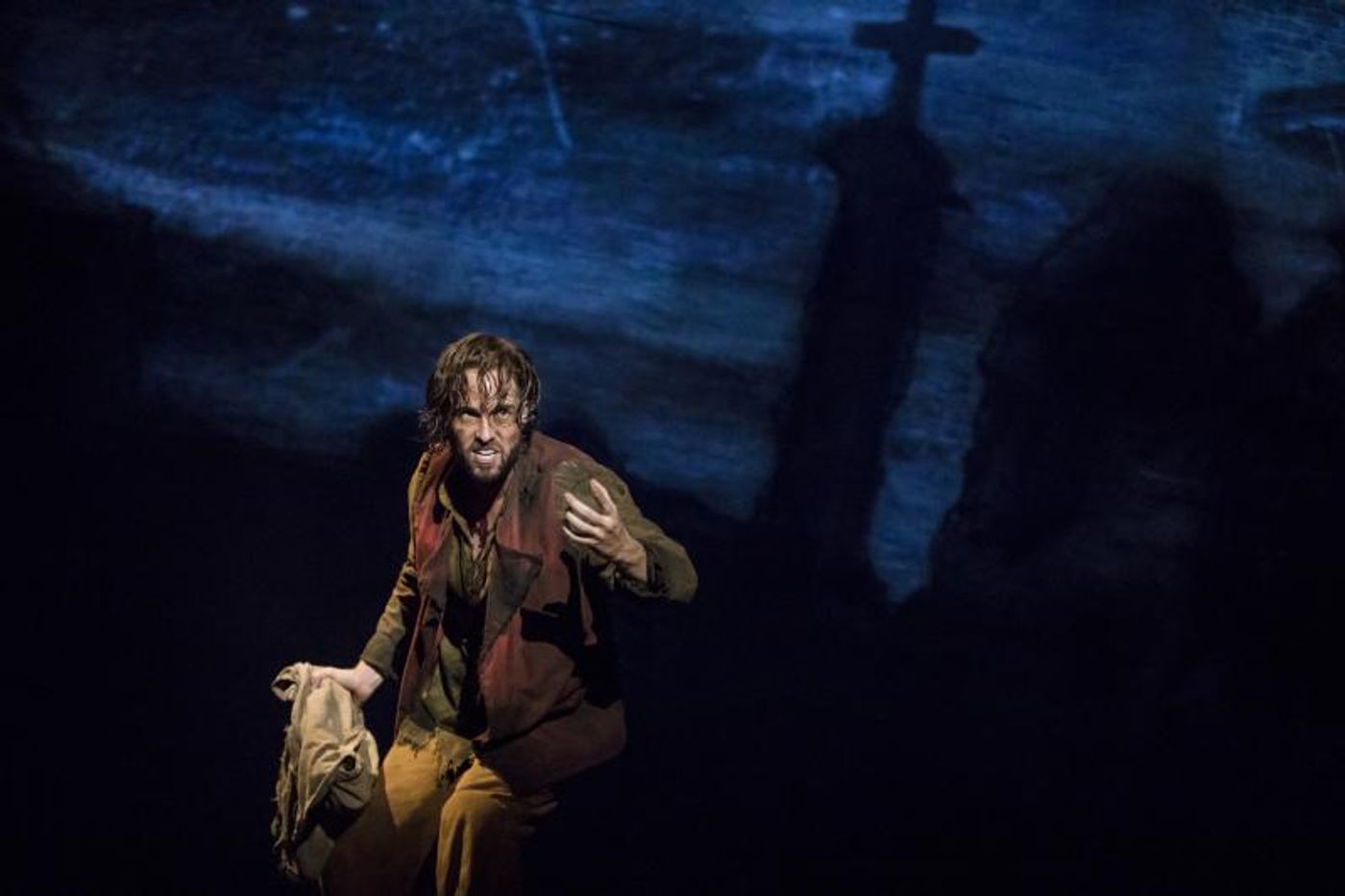
At this point, thirty-four years after LES MIS's English-language West End premiere in 1985, it would be very easy for producers to mount a significantly shortened, scaled-back, non-Equity tour on the cheap. Lord knows others of its ilk have rolled into Orlando looking like a generic brand. But that's not the case for the Cameron Mackintosh / NETworks production currently on stage at the Dr. Phillips Center (NETworks' reputation for cost-cutting notwithstanding). Mackintosh's involvement is significant, given that he produced the show's original West End run.
It's an incredible production with a cast that slays Misérables. Some will lament the use of projection mapping, but it's relatively minimal and tastefully integrated within giant, imposing, ever-moving physical set pieces that tower above the audience and create an incredible sense of scale. I won't spoil any surprises, but there are a handful of very neat effects on stage, physical and digital alike. And the lighting design is both gorgeous and brave, unafraid to cast characters in shadows and keep things dark for long periods of time when it fits the mood.
The current national tour is based primarily on the 2014 Broadway revival, which had in turn borrowed some inspiration from the 25th Anniversary Tour (which has now been recreated in large part in London for the 2019 West End revival). Not having seen the original Broadway or West End stagings or any of their official national tours, I can offer only a second-hand report as to how this new rendition compares: the pace has picked up, the music has been re-arranged, the famous turntable is gone, there are some added elements of comedy, and the new set pieces have been inspired by author Victor Hugo's personal paintings. Purists may carp, but at this point, the world has known so many different interpretations of LES MIS that I only care about whether it's an artful and impactful presentation of the material, and this is certainly that.
Nick Cartell lends a sense of rock-and-roll to his Jean Valjean - tastefully so, with enormous breath support and vocal control - and his performance ages credibly with the character as the story advances through time.
Meanwhile, opening-night understudy Andrew Love sang Russell Crowe right out of my memory as Javert. Joshua Grosso is everything Marius calls for: an incredible singer and a versatile actor - playful but sober, boyish but mature. Paige Smallwood's Éponine had the audience leaping and cheering before she could finish her notes, and Allison Guinn had them eating out of the palm of her scammy hands as the hilariously despicable Madame Thénardier.
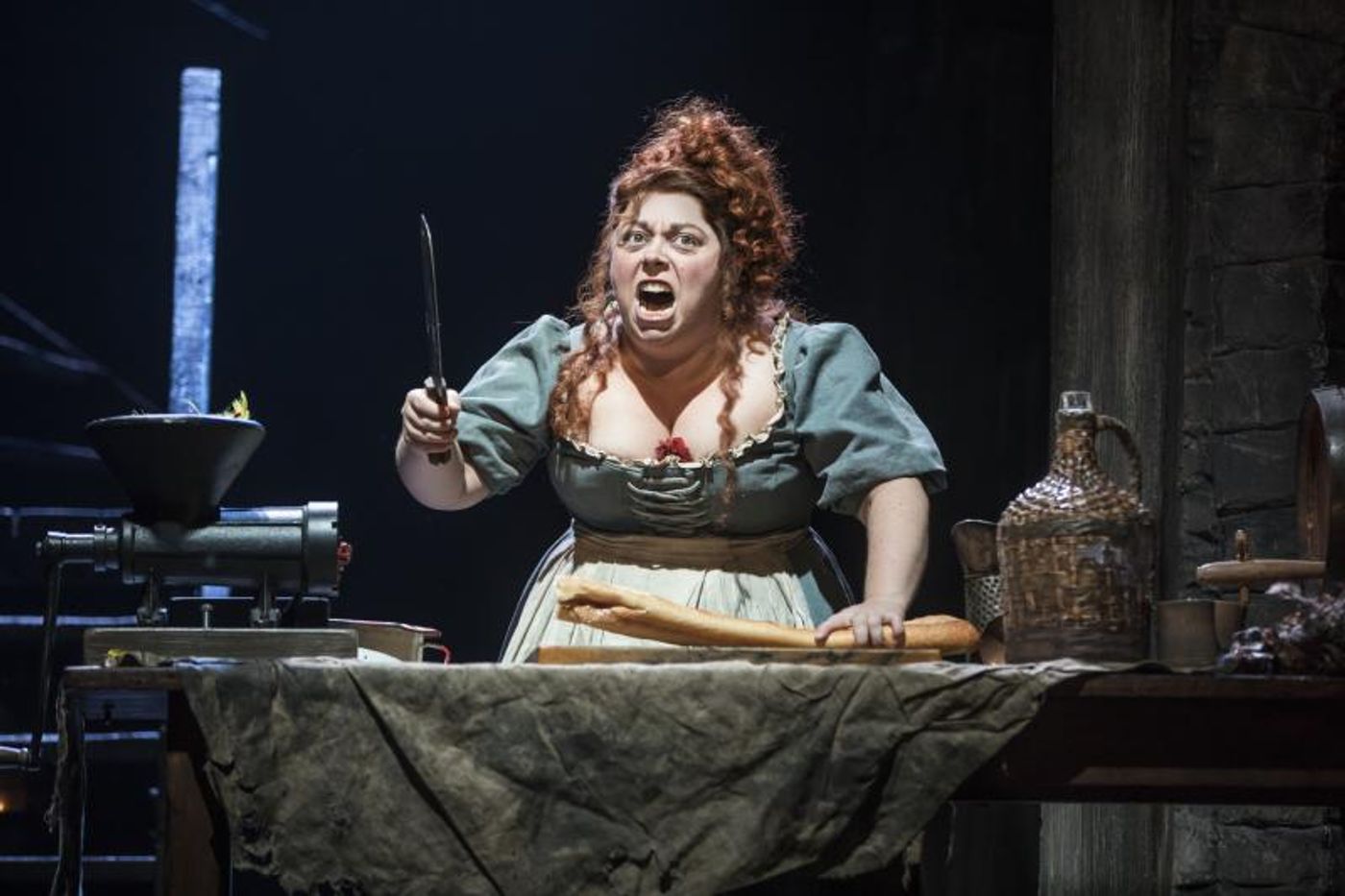
Opening-night understudy Olivia Dei Cicchi's "I Dreamed a Dream" was technically well sung (no small feat) but lacking in dramatic dynamism. That song calls for such torture, anguish, depression, and dejection, but also memories of past optimism and hope. I saw the effort, but the song (so important to the show) never quite resonated emotionally. Her performance was otherwise outstanding.
LES MIS tours with an Equity cast of dozens, the size of its company yet another testament to the high quality of this production. Frankly, it's more than a little surprising that a touring cast of this size could be so across-the-board fantastic. The Dr. Phillips Centers' patrons are well served by a cast of this caliber.
They are less well served by the program, which I'm afraid is once again missing the official Playbill logo that used to adorn the show books here. The Center departed from that tradition last season, opting instead for a large orange "Broadway at Dr. Phillips Center" logo (presumably to save on costs). I made a point of criticizing that decision in each of my Dr. Phillips reviews last year. I am disinclined to continue harping on that this season, so let me say just one last time: Orlando's theatregoers pay at least as much for their tickets as Broadway's patrons. It's a shame that the purchase price isn't rewarded with a Playbill program, which has become such an important and valuable souvenir (and display piece) for so many theatre fans. Many other cities' performing arts centers offer Playbill programs for national tours. I would encourage Dr. Phillips Center to encourage making new arrangements with Playbill to resume that tradition in the future for the sake of their patrons, many of whom reached out to me during the previous season to express their discontent with the new programs.
Programs notwithstanding, Dr. Phillips Center remains one of the United States' best venues for live theatre, and it's a privilege to see such a compelling musical in such rare form and within such a beautiful proscenium. It runs here through October 27, 2019 (with a bonus matinee added on October 24 due to popular demand). Get your tickets or subscribe to the new season at the official theatre website.
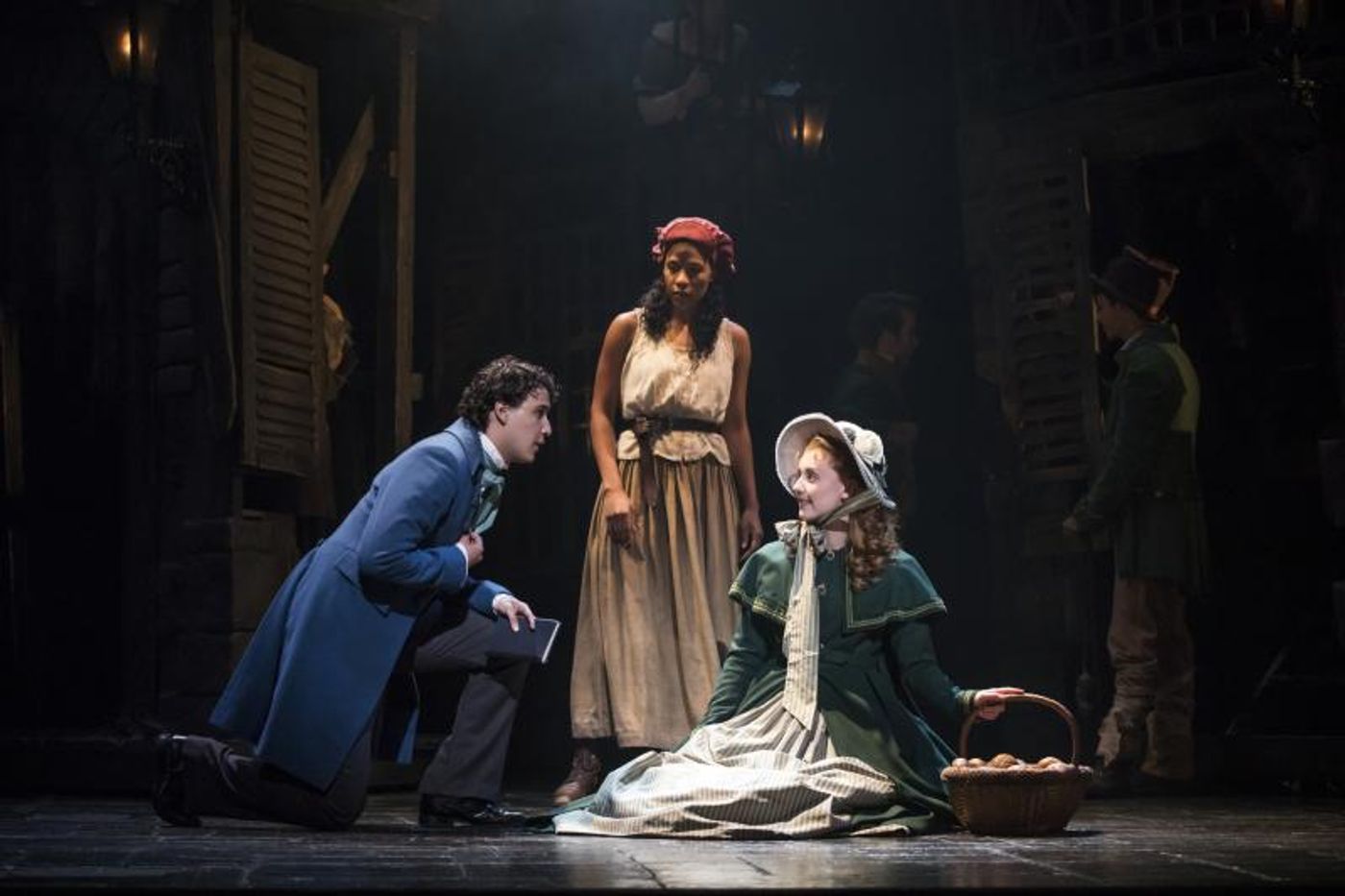
Note: Because LES MIS is a longer show than most, the theatre is making a point of starting promptly, with a 14-minute hold at the top of the show. Likewise, intermission is curt. This isn't one you want to be late for.
What do you think of this latest LES MIS tour? Let me know on Twitter @AaronWallace.
Photo Credit: Photos by Matthew Murphy, courtesy of the Dr. Phillips Center.



